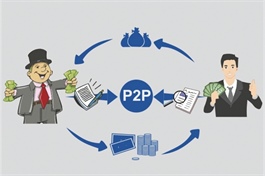Delay now on cards for alcohol excise tax
Delay now on cards for alcohol excise tax
The Ministry of Finance could delay a change in special consumption tax to 2027 and instead introduce a softer roadmap for tax increases on alcohol, aiming to ease business pressure and maintain market stability.
Luu Duc Huy, deputy director general of the Department of Tax Policy Oversight under the ministry (MoF), made the comments at a workshop last week on the topic.
The proposal to delay, submitted to the National Assembly’s (NA) Economic and Financial Committee, seeks to ensure that tax reforms support economic resilience while maintaining regulatory objectives.
According to Huy, the revision of special consumption tax (SCT) strictly follows the tax reform outlined in Vietnam’s tax development strategy through to 2030.
“The strategy contains no directive to increase SCT for the purpose of raising state revenue. There is no reference in the tax reform roadmap to increasing SCT solely for boosting the budget,” Huy said, countering concerns raised about the amendment’s fiscal motives.
The MoF has recommended adopting a more gradual tax adjustment schedule and delaying the effective date to 2027 (see box). This approach is intended to give enterprises more time to adapt without compromising the tax’s regulatory role.
Nguyen Hoang Giang, general director of Saigon Beer Trading Company, said, “The sector has been heavily affected by the pandemic, global trade tensions, and geopolitical conflicts, which have disrupted supply chains and driven up production costs. At the same time, beer consumption continues to decline due to various policy pressures,” Giang said.
He called on lawmakers and regulators to adjust both the magnitude and timing of the tax increase, aligning with the Vietnam Beer Alcohol Beverage Association proposal to support the sector’s recovery.
Tran Dinh Thanh, chairman of Hanoi Beer Alcohol Beverage JSC, pointed to the issue of illicit alcohol and untaxed local beer flooding the market. “If taxes rise now, consumers will likely shift towards these unregulated, lower-quality products,” Thanh said.
While supporting the recommendation to delay tax hikes, he argued that even 2028 might be too early, suggesting that higher taxes should only take effect when enterprises return to solid profitability.
Nguyen Thanh Phuc, director of external relations at HEINEKEN Vietnam, raised concerns about the broader economic ripple effects.
“In 2023, we spent over $650 million on goods and services from local small and medium-sized enterprises, accounting for over 80 per cent of our domestic procurement. A production cutback due to higher taxes would not only affect us but also the livelihoods of tens of thousands of smaller businesses,” Phuc said.
He argued that advancing the SCT amendment at the upcoming NA session would place an additional burden on businesses already facing rising costs, weak consumer demand, and global trade uncertainties.
Economist Nguyen Minh Phong said that the SCT must be carefully calibrated to avoid destabilising the market. “Increasing the SCT at this time could risk slowing down economic recovery and harming key industries,” Phong said.
The NA’s Economic and Financial Committee is now reviewing the MoF’s proposal, with the revised draft law expected to be presented at the upcoming parliamentary session. For enterprises, the government’s willingness to reconsider the tax roadmap signals a constructive approach, though many continue to call for more in-depth engagement and further adjustments.
|
The draft SCT amendment proposes two options for increasing alcohol tax rates (current rate: 65 per cent) Option 1: Tax increases start from 2026, rising 5 per cent annually to reach 90 per cent by 2030. Option 2: Tax increases start from 2026 with an initial 15 per cent hike, followed by annual increases of 5 per cent, reaching 100 per cent by 2030. |
|
Hoang Van Cuong, deputy, National Assembly Vietnam is striving to achieve a GDP growth target of 8 per cent in 2025 and aiming for double-digit growth in the following period, despite facing global risks and uncertainties. These challenges have been amplified by tax policies initiated under the current US administration, placing significant pressure on consumer growth and the contribution of consumption to GDP. The government is currently proposing to the National Assembly to maintain the current VAT rate through to the end of 2026. This suggests that there is a pressing need to lower taxes on consumer goods to stimulate demand and encourage domestic consumption. In this context, it is clear that there is a pressing need to carefully reconsider the taxation on alcohol, especially beer, which remains a widely consumed commodity. Le Duy Binh, managing director Economica Vietnam Over recent years, Vietnam’s private sector has benefited significantly from proactive fiscal policies, particularly tax relief measures. In 2024 alone, the MoF implemented tax, fee, and land rent reductions amounting to approximately $7.6 billion, with $3.8 billion directly supporting businesses and workers, thereby contributing to GDP growth. These measures have helped thousands of enterprises and millions of workers by reducing operational costs, stabilising the macroeconomy, creating jobs, controlling inflation, and ensuring social welfare. The MoF continued these efforts in 2025 with key policies, including tax payment extensions for VAT, corporate income tax, personal income tax, and land rents, totalling around $3.35 billion. In this context, sudden regulatory changes, such as abrupt tax increases, should be avoided. A well-planned, gradual SCT adjustment for the alcohol sectors will help balance regulatory goals with business recovery, supporting Vietnam’s broader economic growth objectives. |
- 07:00 03/05/2025




























